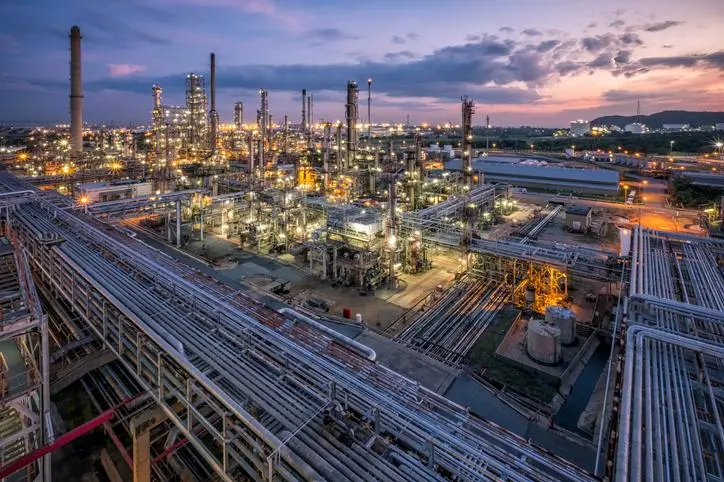PHOTO
If the oil prices remain below $40 per barrel until the end of 2020, more than 50 percent of the oilfield services and equipment companies are likely to face bankruptcies this year, according to a senior energy expert.
Although operators are imposing activity and price cuts as well as renegotiating contracts to reduce costs, the triple shock of COVID-19 and the subsequent collapse of energy demand and oil prices have put the future of the oil and gas industry’s oilfield services and equipment suppliers under threat.
The bankruptcy of suppliers will pose several immediate challenges for operators, said Dr Alex Dolya, Managing Director and Partner at Boston Consulting Group (BCG), in an interview with Zawya.
“First, business and operational continuity will be in jeopardy if replacement suppliers cannot be onboarded right away. Second, they will incur substantial transaction costs from managing legal and contractual disputes with bankrupt suppliers. Third, health, safety and environment (HSE) risks may arise due to loss of critical operations knowledge and insights from bankrupt vendors and insufficient handovers from bankrupt incumbents to new players,” he said.


Dr Alex Dolya, Managing Director and Partner at Boston Consulting Group. Source: BCG
RISK FACTORS
Dolya sees a significant risk of price inflation. As a result of consolidation within the industry, when oil prices eventually start to rise and the demand for services increases, the remaining players in each category will have a higher degree of market power that will enable them to raise costs and obtain higher margins from operators.
The prevailing conditions are likely to make the OFSE industry weaker than before, he said, adding that a push to reduce costs has led to significant underinvestment in both R&D and technology, and there may also be a lack of talent due to redundancies and people moving to other industries.
On the effects of low oil prices, Dolya said both operators and suppliers will be affected by persisting low oil prices. “To survive in a world with the current state of lowered oil prices and production quotas, operators will respond with cuts in capital expenditure and operating expenditure to reduce supply and meet lower demand. In terms of capital expenditure cuts, these will more than the 30 percent that has been announced when compared to 2019 levels.”
He also noted that procurement and supply chain management organizations will come under mounting pressure to reduce unit costs and ensure supply chain resilience in response to COVID-19 lockdowns.
Dolya recommends that national oil companies (NOCs) in the Arabian Gulf region adopt strategies to mitigate risks arising from the current oil industry crisis, which is significantly bigger than the crisis in 2014, when oil prices fell by 40 percent. In terms of procurement, NOCs in the GCC need to take mitigation measures both immediately and in the medium term. Dolya lists three main priorities:
The first is safeguarding business continuity, which can be done by building forward-looking risk monitors that identify areas of supplier distress and utilize the levers available to operators to navigate supplier difficulties.
The second is proactively communicating and engaging with suppliers, which entails maintaining open dialogue concerning supplier troubles, establishing mitigation measures that can be put in place and exploring collaborative ways to reduce costs.
Finally, NOCs must identify areas that require sustainable reductions in expenses, which includes removing discretionary expenditure, reducing requirements specifications and conducting demand management activities to ensure sustainability in terms of expenditure and waste removal of all viable options.
SLOWDOWN IN GREEN ENERGY EFFORTS
Dolya noted that the current oil and gas price volatility could decelerate technology substitution in some areas in the short term. “For instance, lower gas prices could improve the economics of switching from coal to gas, instead of switching from coal to solar or wind. Similarly, lower fuel pump prices could also slow down the switch to electric vehicles. It is also important to mention that carbon market prices under the European Union Emissions Trading System (EU ETS) continue to plunge because of economic shutdown.”
However, he does not see the long-term global trend around renewables decreasing because of short-term volatility in the oil and gas markets.
(Reporting by Atique Naqvi, editing by Seban Scaria)
#BCG #OIL #BANKRUPTCIES #ENERGY
Disclaimer: This article is provided for informational purposes only. The content does not provide tax, legal or investment advice or opinion regarding the suitability, value or profitability of any particular security, portfolio or investment strategy. Read our full disclaimer policy here.
© ZAWYA 2020





















